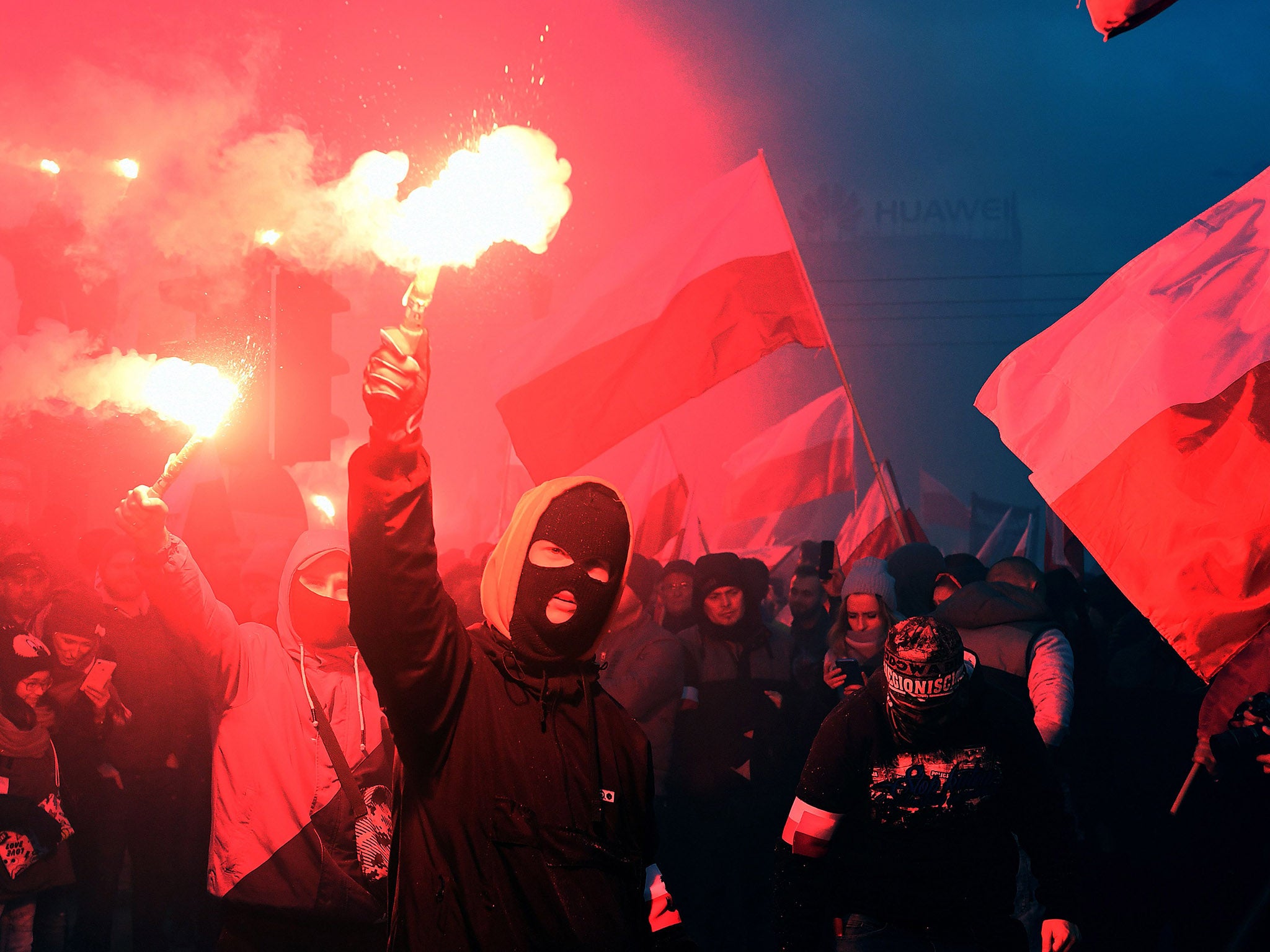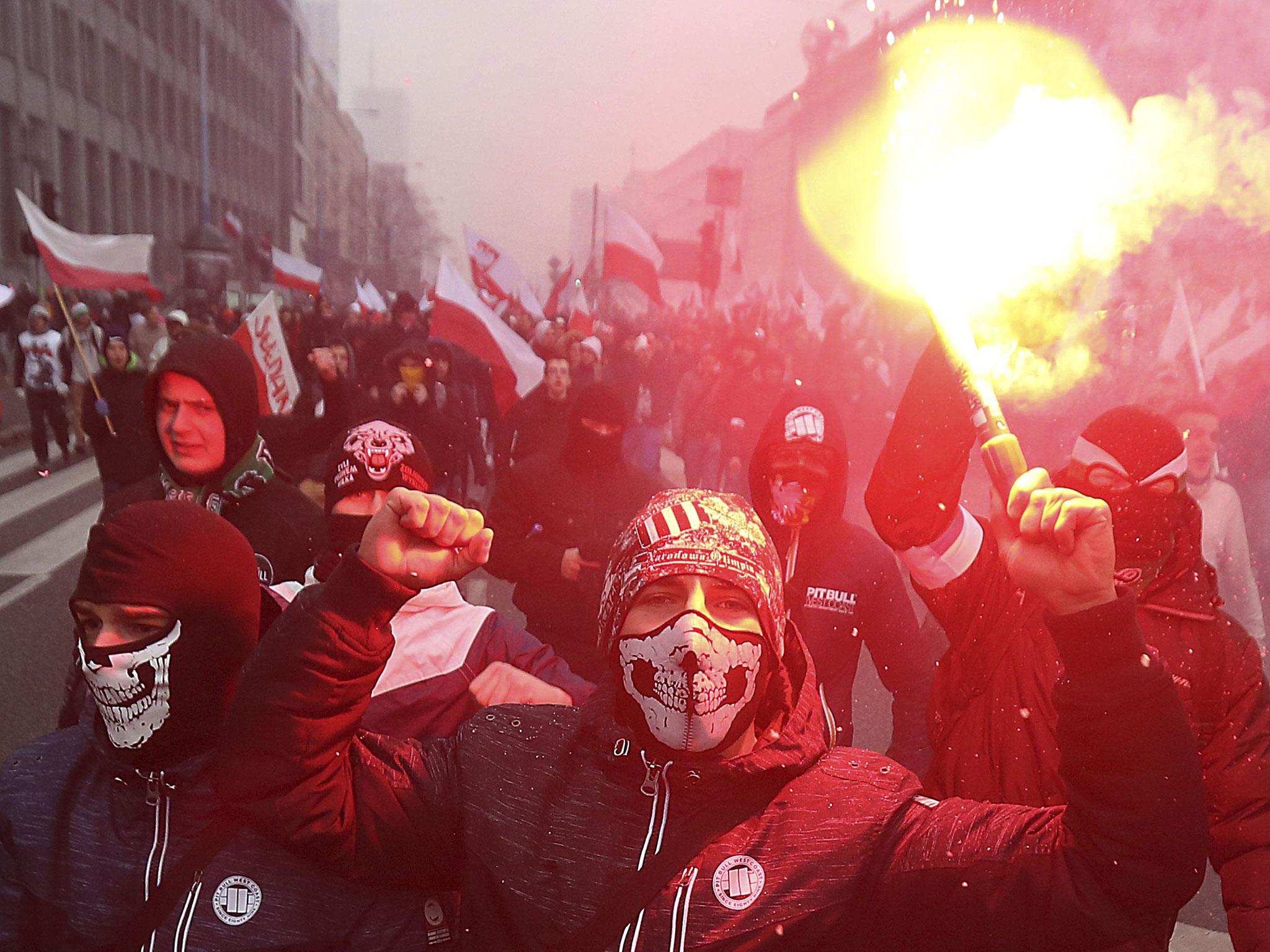Poland independence day: Far-right march banned over fears of violence
'This is not how the celebrations should look,' says Hanna Gronkiewicz-Waltz

Your support helps us to tell the story
From reproductive rights to climate change to Big Tech, The Independent is on the ground when the story is developing. Whether it's investigating the financials of Elon Musk's pro-Trump PAC or producing our latest documentary, 'The A Word', which shines a light on the American women fighting for reproductive rights, we know how important it is to parse out the facts from the messaging.
At such a critical moment in US history, we need reporters on the ground. Your donation allows us to keep sending journalists to speak to both sides of the story.
The Independent is trusted by Americans across the entire political spectrum. And unlike many other quality news outlets, we choose not to lock Americans out of our reporting and analysis with paywalls. We believe quality journalism should be available to everyone, paid for by those who can afford it.
Your support makes all the difference.A Polish nationalist march has been banned in Warsaw by the mayor, who cited a risk of violence and hate speech.
One of the extreme right nationalist groups who were planning the annual demonstration to mark the centennial of Poland’s independence vowed to defy the ban.
Tensions have previously run high at the rally, with far-right demonstrators involved in violence with counter protesters.
Polish leaders are planning a more inclusive march for citizens, marking a significant U-turn for the populist government, which has been trying to court far-right voters.
Warsaw authorities had faced the prospect of international criticism over the protest, which has previously drawn tens of thousands to the capital, with some demonstrators carrying white supremacist and Islamophobic banners.
Members of the European Parliament called the participants “fascists” last year, angering some in the Polish government, who said most people marched without the racist banners.
Mayor Hanna Gronkiewicz-Waltz told a news conference: ”This is not how the celebrations should look on the 100th anniversary of regaining our independence.
“Warsaw has suffered enough because of aggressive nationalism.”

She noted that the chief organiser of the Warsaw march is a leader of the National Radical Camp, which is rooted in an antisemitic movement of the 1930s. She said she has asked the government to outlaw it but has been ignored.
President Andrzej Duda and Prime Minister Mateusz Morawiecki met after the mayor’s announcement and announced that a government-organised march would take place in Warsaw on Sunday instead.
Presidential spokesman Blazej Spychalski invited all Poles to march with national flags to show that “we are one white-and-red team”, a reference to the flag’s colours.
The government had held failed talks earlier with the nationalists, hoping to make their march a state event, but organisers refused the government's demand that marchers could carry flags only and no banners, Mr Morawiecki said.
The annual rally in the capital on 11 November commemorates Poland’s rebirth as a nation in 1918 after being wiped off the map for 123 years.
Polish Independence Day celebrates the country regaining its sovereignty at the end of World War I, after being partitioned and ruled since the late 18th century by Russia, Prussia and the Austro-Hungarian Empire.
Poland has seen a surge in nationalist thinking and activity since the collapse of communism, following years of living behind the Iron Curtain.
Additional reporting by Associated Press and Reuters
Join our commenting forum
Join thought-provoking conversations, follow other Independent readers and see their replies
Comments